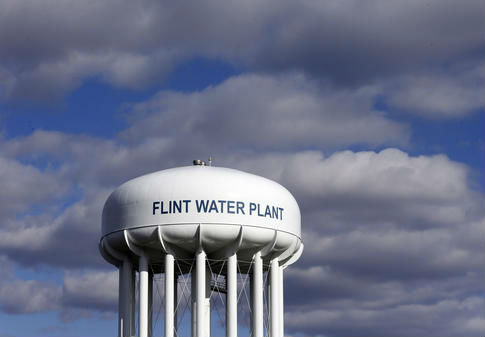The Environmental Protection Agency's inspector general said Thursday the agency should have issued an emergency order about the lead crisis in Flint, Michigan, seven months before it did.
Lead seepage into the water supply of Flint, a city with a majority African-American population, caused a public health crisis after the city switched its water supply in 2014. Corroded pipes caused lead poisoning of Flint's water supply, and drinking the tainted water has already caused residents a host of physical and possible mental health problems. Michigan Gov. Rick Snyder (R.) has repeatedly apologized for the crisis, saying it was a failure of government on all levels.
BREAKING: Inspector general says EPA should have issued emergency order in Flint, Michigan, lead crisis 7 months before it did.
— The Associated Press (@AP) October 20, 2016
The EPA issued an emergency order regarding the water crisis in January 2016. The agency was made aware of high lead levels in Flint's water in June 2015, however, Time reported.
In June 2015, Miguel del Toral, a regulations manager in the EPA's ground water and drinking water branch, sent a memo to his agency superiors titled: High Lead Levels in Flint, Michigan–Interim Report. In it, del Toral stated that there were elevated levels of lead in several Flint homes after the city began using the Flint River as its municipal water source. In one home, the lead levels amounted to 13,200 parts per billion. The level that triggers federal action is 15. Del Toral also wrote that Flint lacked a plan to adequately prevent corrosion in the lead pipes that delivered water to the city of almost 100,000 people.
By then, local residents had been complaining of rashes, hair loss, and other ailments, and General Motors had stopped using Flint water at its local plant because it was corroding engine parts. Still, city and state officials continued to tell the public that Flint's water was safe.
The EPA, however, did not act publicly on del Toral's findings. Susan Hedman, the EPA administrator who resigned this week, has argued that her office could not legally make that information known. That claim was based on an interpretation of federal law that the EPA is responsible for establishing standards for states to follow, but doesn't necessarily have the ability to force states to comply with those standards. As a result, Hedman says the EPA tried to apply behind-the-scenes pressure to get the Michigan Department of Environmental Quality to take action.
Flint's crisis received national attention and became a key part of Democratic Party politics. President Obama visited in May, and Democratic primary candidates Hillary Clinton and Sen. Bernie Sanders (I., Vt.) held a debate there in March.
